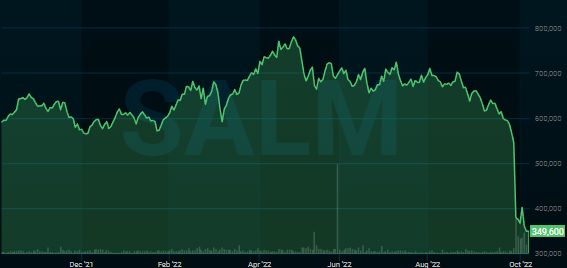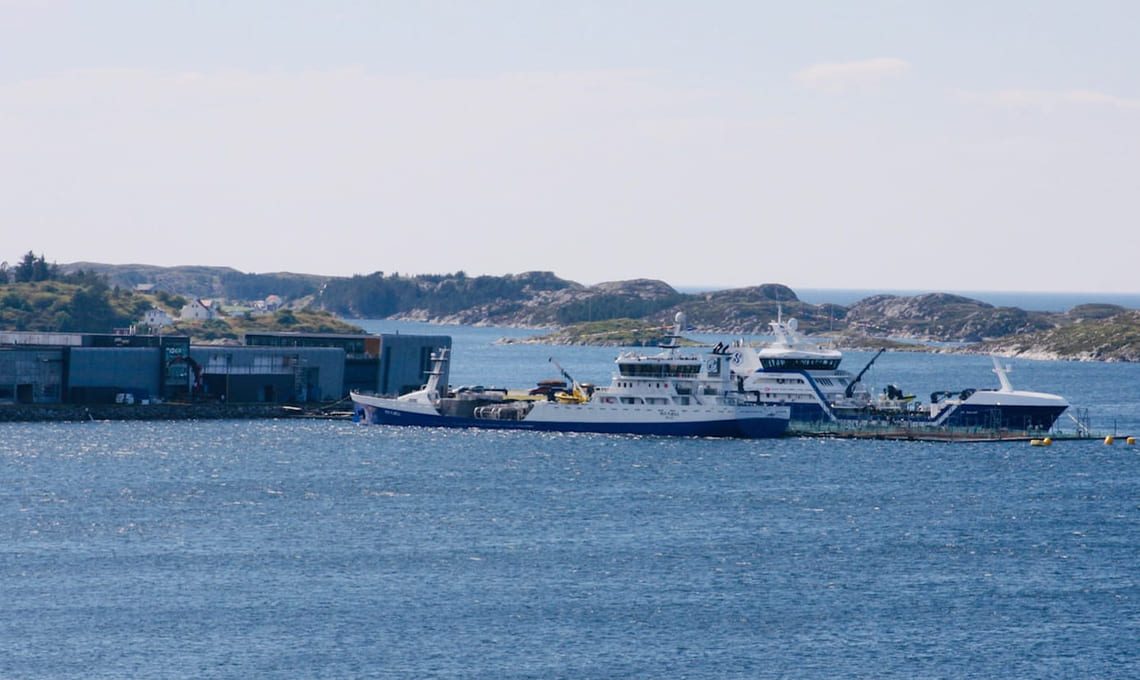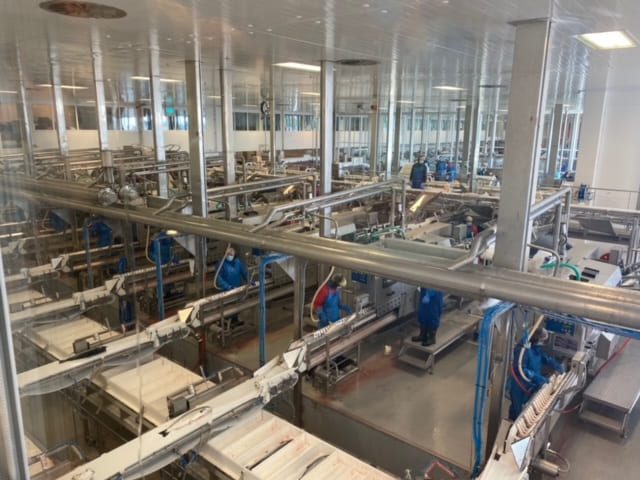Values worth over NOK 50 billion (€5 billion) have been lost.
SalMar’s takeover bid for competitor NTS had just expired. The Frøya company had acquired 52.68 percent of the shares. The power struggle was over.
SalMar’s strongman Gustav Witzøe was the victor after one of the fiercest takeover battles in recent Norwegian fish farming. SalMar’s share price was at an all-time high .
Now it was going to be a steep descent.

Balanced focus
The stock market value of SalMar has fallen from a peak of NOK 779.50 on 28 April to a provisional bottom of NOK 346, after a fall of another 4.2 per cent on Wednesday.
This means a total paper loss of 55 percent or NOK 50.9 billion (€5 billion) in just over five months. You have to go all the way back to the heaviest coronavirus crisis to find the level of the share price for the otherwise rock-solid SalMar.
DNB Markets warned on Tuesday that SalMar and Måsøval will be particularly hard hit by the resource rent tax, in addition to the fact that “the balance sheets of the companies look more stretched than the other companies after recent acquisitions”.
At the end of the second quarter, SalMar had a net interest-bearing debt, including leasing obligations, of NOK 6.9 billion (€690 million).

“We see several specific risks: reduced cash flow to service debt after a tripling of tax costs, impairment of goodwill and the prospect of banks reducing targeted debt per kilo,” the investment bank wrote.
Most of the drop in value, more precisely 30 per ent, came last Wednesday, when the government’s proposal for a resource rent tax became known. But the fall has by no means stopped for SalMar.
The uncertainty is spreading.
Influenced
The proposed resource rent tax affects the listed large fish farmers in different ways.
“Måsøval is probably the company most affected, as they have all their operations in Norway. SalMar also has a lot of operations in Norway, so they are also heavily affected,” Pareto analyst Carl-Emil Johannessen said.

“Lerøy and Grieg will be somewhat less affected, but will still be greatly affected. Mowi has relatively most of its operations outside Norway, and in that sense will have less consequences,” Johannessen added.
SalMar, together with its partner Aker, has put a lot of resources into the development of offshore salmon farming. These extremely capital-intensive plans are now threatened by the government’s heated resource rent proposal.
“As a result of the new tax proposal, we are now reviewing all future investments,” SalMar’s CEO Linda L. Aase told SalmonBusiness on Tuesday.


